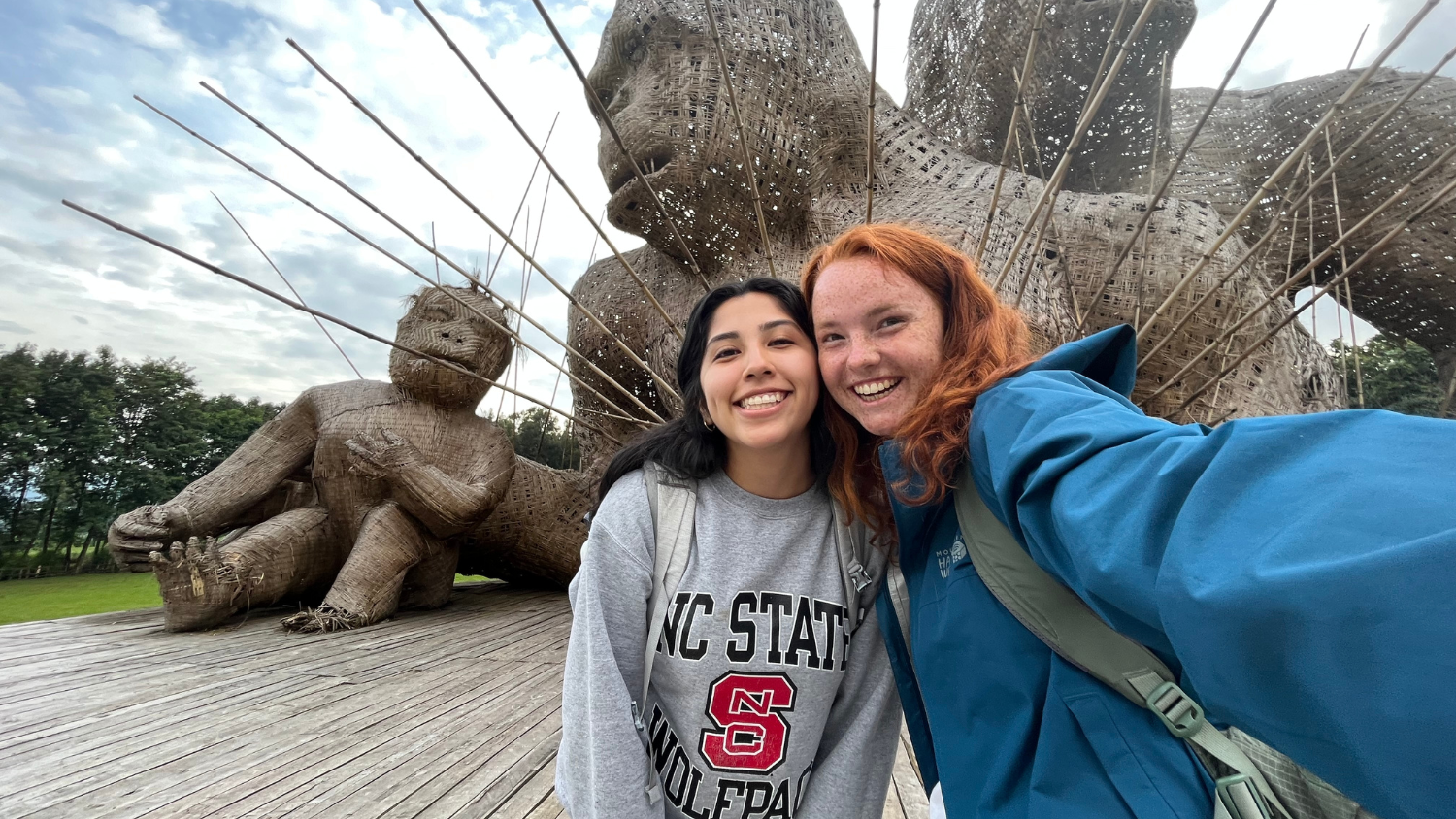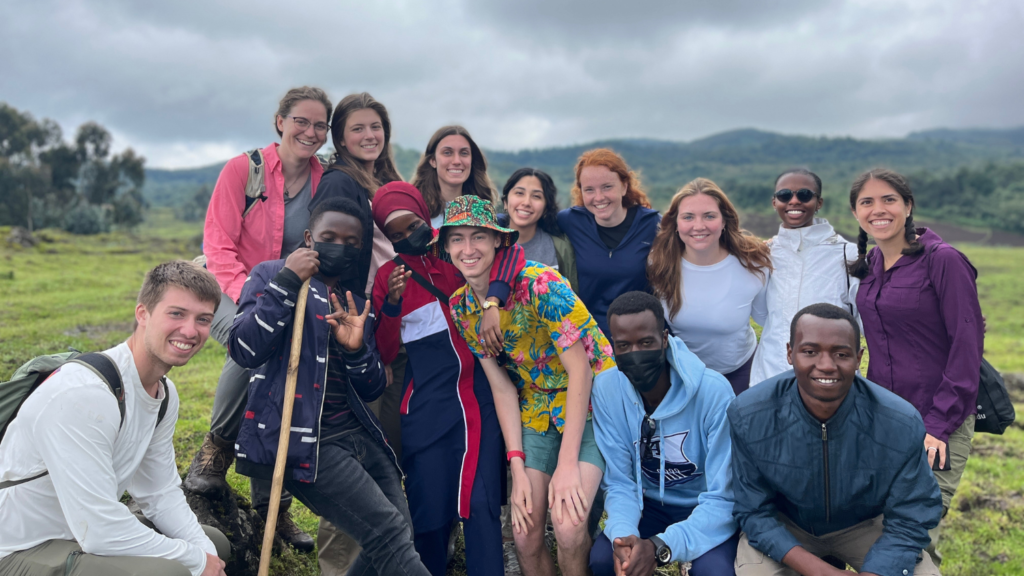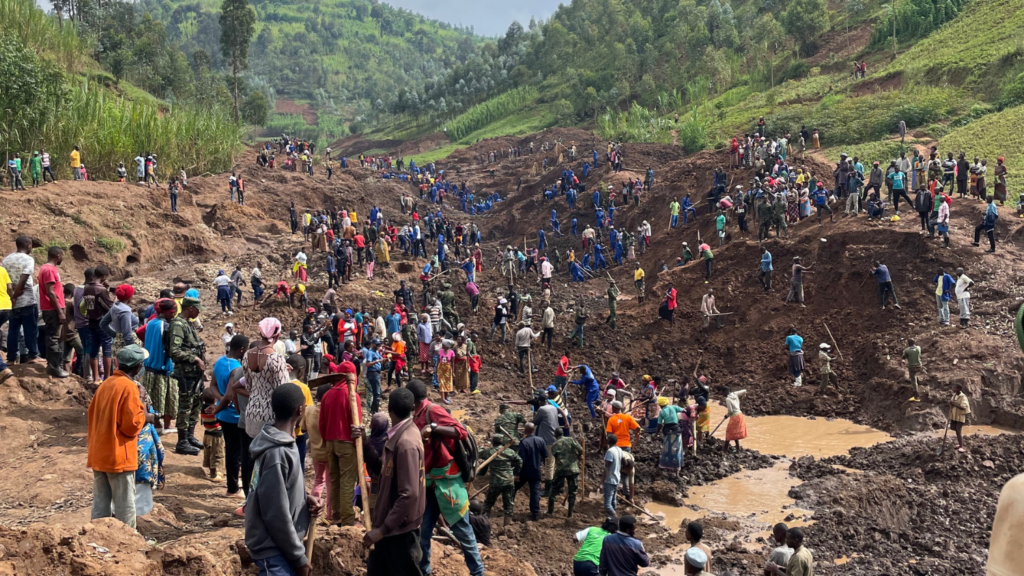Meet Daniela Santibanez (she/her/hers)

Program and Location:
Summer, Rwanda: Field Experience in Engineering Education; Musansze (Ruhengeri) , Rwanda
Major/Minor:
Industrial and Systems Engineering
Why did you choose to study abroad?
Going into my senior year, I knew study abroad was definitely an opportunity I didn’t want to miss out on. I found out about this trip specifically through a faculty member and was most interested in the engineering education aspect of it and its impact on promoting diversity within STEM. Beyond that, I was also really excited to visit Africa, this was my first trip outside of North America and I heard great things about Rwanda from previous ASB and program participants.

What did you learn about yourself?
One of the main things I learned from being in Rwanda and EED class I took there, was the importance of having a good understanding of the culture and background of whatever setting you’re doing work in. While AI and advanced technology is a growing field in the US, a growing field in Rwanda related to engineering is water safety, irrigation systems, road systems that accommodate to their mountainous landscape, sustainability, etc. Even in our classroom projects, our goals included understanding the dynamics and background of each group to make sure we tailored the lesson plan and our language to each audience (more advanced students, less advanced students, all female groups, female & male groups). Overall, I’ve gained the ability to learn and understand the importance of having a global perspective that allows you to ensure your work can be impactful/meaningful and useful to the audience you’re targeting.
What was one of your favorite parts of your program?
Having the opportunity to directly interact with secondary school students and work on STEM projects with them was one of my favorite part of the trips. All of us quickly realized that the students were pretty intelligent and had a great understanding of a lot of the core STEM topics we were targeting. However, because of a lack of resources they really just struggled with applying these subjects to real world situations or experiments. In teaching our classes, the most impactful aspect was seeing the interest and excitement from students after they realized they achieved the goals of their projects. In some ways, guiding them through these projects, gave us the opportunity to help build their own confidence and skills in their already strong STEM background. Playing a part in that process was great for me.
What advice do you have to future study abroad students?
Overall, I’d just encourage students to make the most of their trip and embrace some of the discomfort of being in a new environment. We were lucky enough to be able to closely work with local college students from Rwanda that often volunteered to serve as our “tour guides” of the city and showed us some of the most stunning areas of Musansze. Developing connections with them really gave us the opportunity to genuinely get to know the country and its culture in a very personal way.

How did your study abroad experience prepare you for your future career?
Though the STEM project I led was not directly ISE (Industrial and Systems Engineering) related, I really treated teaching as it’s own ISE project. ISE at its core is identifying clear ways to improve systems and thus result in positive impacts on that system. In that view, education is it’s own system that, with improvements results in students having better understanding of the material and learning outcome you are trying to enforce. For me, this looked like getting feedback from students, their own teachers and our own professors to ensure our lesson plans were changed appropriately to target the right goals for each group of students. Essentially, just continuously making small improvements for an overall better experiment or system, a core ISE method.
Were you surprised by anything during your time abroad?
Beyond doing our STEM projects with students, we also had the opportunity to participate in Rwanda’s Umuganda day. This is a community service tradition in Rwanda in which one individual from each household must sign up to help with a certain community service activity in their local area on the first of each month. Our group was involved in the repair and cleaning of a landscape where an illegal mine was made in Musanze. The best part of that experience was seeing the thousands of people who came to help with this project. I had never quite seen such a large group of people coming together with a similar goal and passion for the same thing.

In what ways did your identity have an impact on your experience abroad?
As a first generation student, I’ve always been passionate about exposing and encouraging others to STEM opportunities, so this program seemed like a great way to aid in that goal. I saw a lot of myself within the students we worked with. A passion for learning and drive to succeed academically were the two defining characteristics for most of the students I worked with. Connecting with them in these two aspects made this experience all the more meaningful and encouraged me to make the most of the lessons I had with them.
Would you do it again?
100%